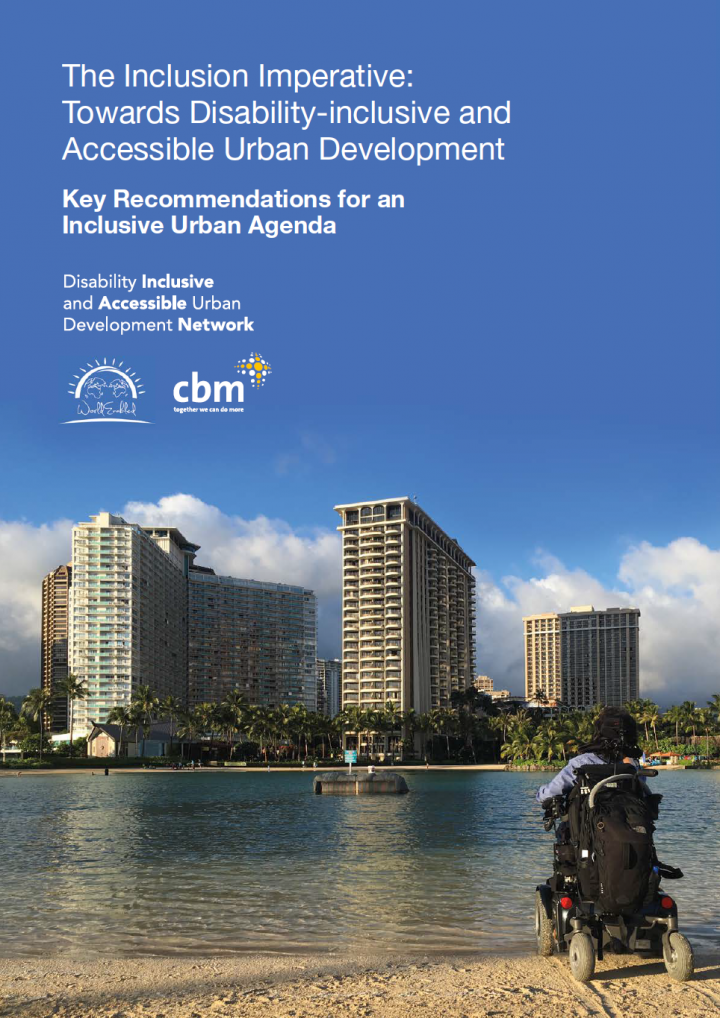The Inclusion Imperative: Towards Disability-Inclusive and Accessible Urban Development Key Recommendations for an Inclusive Urban Agenda DIAUD & CBM (2016)
Urbanization is one of the most important global trends of the 21st century. It has the potential to contribute to the “re-design” of our world supporting the creation of sustainable and inclusive cities for all. About 6.25 billion people, 15% of them with disabilities, are predicted to be living in urban centers by 2050. Urban environments,
infrastructures, facilities, and services, depending on how they are planned and built, can impede or enable access, participation, and inclusion in society. As of today, persons with disabilities living in urban areas all around the world continue to face dramatic challenges to participate in their communities due to a widespread lack of accessibility to the built environment. Barriers to the physical environment and to accessible information and communication impede their enjoyment of basic urban services; from housing to roads and public spaces, from public buildings to basic urban services such as sanitation and water, health, education, transportation, mergency and disaster response and resilience. These barriers directly impact on the disproportionate rates of poverty, privation and exclusion faced by persons with disabilities, but also affect the development of their communities as a whole.
This publication is of critical importance as it contributes a clear overview of the main issues at stake. Namely, that governments, civil society organizations, and the private sector have a role to play in ensuring that accessibility is not an afterthought but a central component of their work. It also provides guidance on how to address the ccessibility lack, in a simple way supporting policy makers in designing solutions for all from the start. It is important to stress once again that there are no excuses to leaving persons with disabilities behind; our recognition as equal members of society will bring prosperity to all and cities that are respectful and safe for all human kind.
Bibliographic information
DIAUD & CBM (2016). The Inclusion Imperative: Towards Disability-Inclusive and Accessible Urban Development Key Recommendations for an Inclusive Urban Agenda Disability Inclusive and Accessible Urban Development Network (DIAUD) and CBM
Filter / Tags
EducatorsPoliticians and local decision makersPractitionersGuidelines and manualsFactsheets and policy briefsEnglish
Downloads
The Inclusion Imperative: Towards Disability-Inclusive and Accessible Urban Development
Type: application/pdf
Size: 1.22 MB

